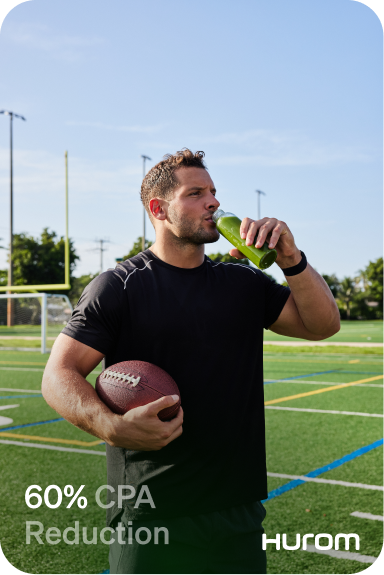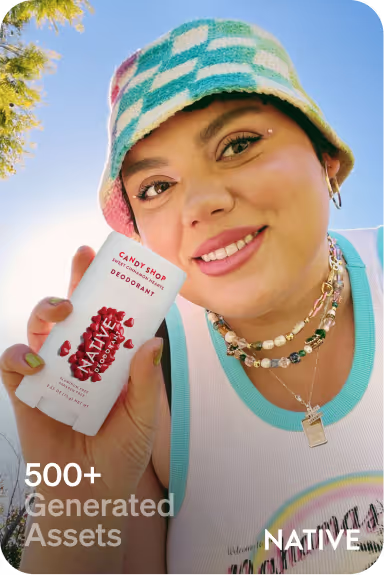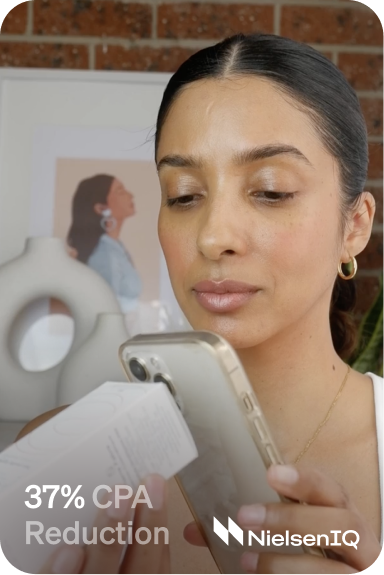Healthcare runs on credibility, and every message shapes how patients and regulators see you.
Patients weigh every choice twice, the competition keeps rising and the rules only get stricter. That’s why the agency you choose to tell your story matters. Pick the wrong partner and you risk compliance missteps, wasted effort, and the erosion of credibility.
Actually, 72.2% of total media ad budgets in healthcare and pharma now go to digital channels. That shift is what makes the fight for visibility even tougher.
So, an agency partner that protects compliance while driving measurable patient acquisition is a must.
In this guide, we'll take you through all the steps, red flags, and comparisons that can help you choose wisely.
What Is a Healthcare Advertising Agency?
A healthcare advertising agency is a specialized partner that manages campaigns with strict HIPAA compliance. They also bring deep knowledge of patient psychology, payer systems, and complex decision cycles.
Unlike generalist firms that focus on retail or SaaS, these agencies handle medical marketing, where HIPAA violations can reach over $2 million per incident.
The services typically include online advertising on social media, SEO, and content marketing on search engines. They also cover provider outreach, branding, and campaigns built around the patient journey.
What makes healthcare marketing different than the rest is that every message must align with sensitive regulations and patient expectations. Choosing the wrong agency risks wasted budget and compliance penalties that damage long-term credibility.
For more perspective, watch this short video on modern healthcare marketing strategies.
Next, let’s look at the benefits of choosing a specialized partner.
What Are the Benefits of Working With a Specialized Healthcare Advertising Agency?
The benefits of working with a specialized healthcare digital marketing agency include working with a team that understands the unique challenges of your field. From compliance rules to patient trust, they bring strategies designed for the realities of healthcare.
Here’s what that looks like in practice:
- ROI-driven growth: A healthcare-focused agency measures every dollar spent against outcomes such as lower cost per acquisition, more booked patient appointments, and stronger retention. The payoff becomes clearer when advanced analytics are integrated: Around 41% of healthcare marketers report improved patient engagement and retention when they scale conversation insights across their organizations.
- Access to multidisciplinary teams: Instead of handling multiple vendors, you get SEO, social media marketing, paid ads, analytics, and creative all in one place. This matters because costs vary widely by channel. For example, the 2025 Average Patient Acquisition Cost Report shows that paid search averages $342 per patient, while organic SEO is closer to $215.
- Compliance-first approach: Every campaign respects regulatory requirements such as HIPAA, GDPR, or FDA restrictions. This reduces the risk of costly violations.
- Scalable solutions: A specialized agency can expand programs without losing compliance or data accuracy, for a single clinic or an entire hospital system.
Next, let’s talk about the steps you should take to choose the right agency for your needs.
How to Choose the Right Healthcare Advertising Agency
Picking the right healthcare advertising agency is a big decision. It affects how you grow, how you stay compliant, and how patients trust you over time. The wrong fit risks wasted budget and unnecessary exposure. Here are a few steps to help you choose wisely.
Step 1: Define Your Goals and Metrics
The first step is clarity on what you want to achieve. Goals usually include lowering CAC, increasing admissions, expanding a specialty practice, or launching a health tech tool. Once goals are set, you can align them with measurable benchmarks such as ROI, CPA, conversion rates, retention, and LTV.
Without clear benchmarks, you risk evaluating an agency on surface metrics instead of outcomes that matter.
For example, a sustainable ROI benchmark in healthcare digital presence campaigns is around 3.62x. This means for each $1 invested, you should see about $3.62 in revenue.
Cost benchmarks also vary significantly by specialty. According to Focus Digital, paid CACs range from $477 for general practice to $239 for dermatology, and up to $1,113 for neurology. This variation just shows why a general approach will not work. Your agency should measure against your specific goals and not generic averages.
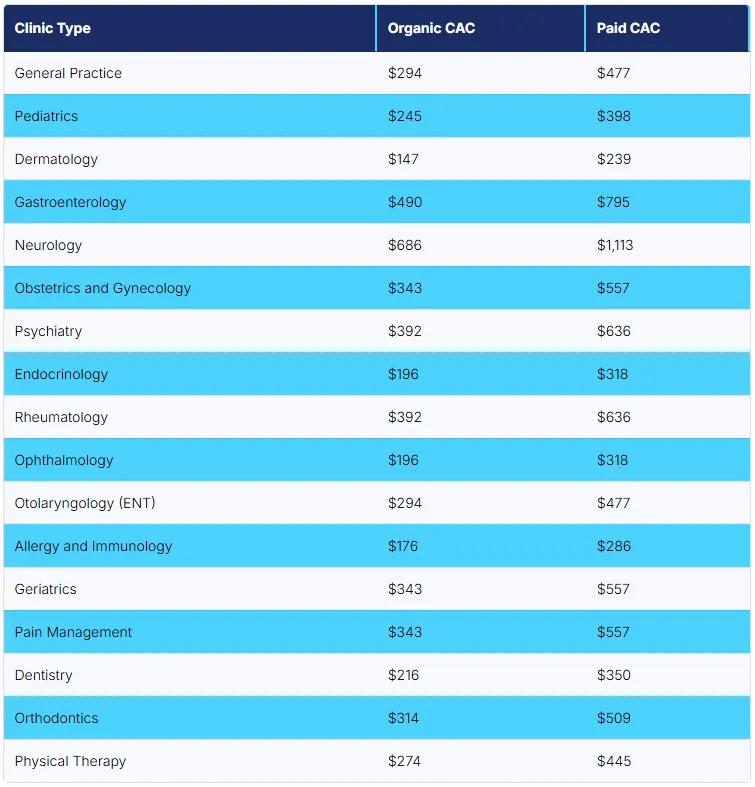
Step 2: Vet Their Healthcare Experience
You cannot afford an agency learning on your budget. A qualified partner should present case studies in your exact niche, whether that's hospitals, private practices, or health tech.
Review whether they have handled payer systems, CPT codes, and integrations with EMRs or CRMs. These systems shape how campaigns can target and track patients.
Ask for client examples where they improved patient experience while meeting strict compliance rules. If they cannot provide healthcare-focused references or audience insights, you are likely dealing with a generalist agency that may not understand your target market.
Step 3: Demand Compliance Documentation
Compliance must be at the center of every campaign. A competent agency should demonstrate safeguards for HIPAA compliance, GDPR, and patient data security.
They should also know ad platform restrictions on Meta, Google, and pharma-specific placements. Apart from that, they must respect state medical board rules for advertising services.
The risks are not theoretical. According to HHS, since the HIPAA Privacy Rule began, the Office for Civil Rights (OCR) has received over 374,000 complaints and conducted more than 1,193 compliance reviews. In 152 cases, civil penalties totaled nearly $145 million.
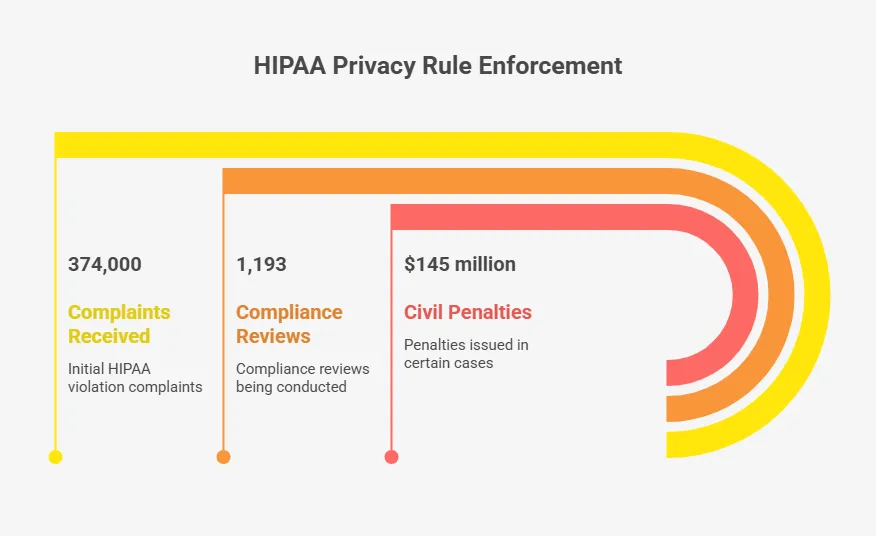
These numbers show the financial and reputational impact of poor compliance. If an agency cannot show you written policies and reporting structures for data handling, you should walk away.
Step 4: Ask the Right Discovery Call Questions
The discovery call is where you separate strong contenders from weak ones. So, we suggest that you go in prepared with direct questions. Ask what KPIs they report. Do they show CPA, patient bookings, funnel conversion rates, or only impressions?
Clarify who owns ad accounts, creative assets, and analytics dashboards. You should never allow an agency to hold your data hostage.
Finally, request to speak with a current healthcare client. A refusal here is a major red flag.
Step 5: Spot the Red Flags Early
Some signs can tell you immediately that an agency is not built for healthcare.
Promises like “100 guaranteed leads a week” usually translate into low-quality lead generation. This can drain your budget and damage your reputation management.
Long mandatory contracts of 12+ months without performance proof are another red flag. They tie up your budget with no evidence of return and leave you carrying the risk if results don’t follow.
You should also be cautious of agencies that only offer paid ads without SEO, patient journey content, or referral pathways. This siloed approach limits your digital presence and inflates costs.
Finally, if their reporting is limited to clicks and impressions, you will not have the data to track customer retention or revenue impact. There are real-world consequences for this. Assurance IQ and MediaAlpha paid $145 million over misleading lead practices in health insurance. This is proof that poor oversight can escalate quickly.
Step 6: Compare Agency Models
Agencies come in different models, and your choice depends on budget, scope, and timeline. Full-service agencies manage everything from Google Ads and SEO to creative design and website development. In other words, they offer scale but at higher retainers.
Boutique agencies focus on niches, usually excelling in specific aspects of healthcare marketing like patient referral campaigns or local SEO. Freelancers or consultants are best for small projects or creative thinking sprints, but may lack compliance depth.
The right model depends on your growth stage. A hospital group may need omnichannel support, while a private dermatology practice may benefit more from specialized PPC campaign management.
Step 7: Evaluate Technology & Analytics Capabilities
Finally, examine the tools an agency uses to deliver insights. A strong partner should provide dashboards in GA4, Looker Studio, or Power BI. These platforms help you connect campaign performance with patient bookings and financial outcomes.
There are advanced data-driven strategies that you can use. For example, incrementality testing shows the true lift of campaigns by isolating what your ads actually drive beyond baseline performance. Media mix modeling, on the other hand, helps you measure how each channel contributes to results over time instead of relying on vanity metrics.
Ownership matters here as well. If the agency builds your data pipelines, make sure they remain under your control. This protects your client-agency relationship and prevents dependency that restricts your options later.
Why Healthcare Advertising Is Different From Other Industries
Healthcare advertising requires a different approach because decisions involve risk, regulation, and patient trust. Standard marketing strategy tactics usually fail when applied without adaptation. The differences are:
- Selling trust: A campaign must convince a cautious target audience that care is safe, effective, and credible.
- Long decision cycle: Patients rarely act on the first ad. They research, hesitate, and seek referrals, which makes the buyer's journey slower than in other industries. In healthcare, 84% of patients use the internet to research hospitals or providers before visiting.
- Regulatory compliance: Every campaign must meet HIPAA, GDPR, FDA, or PHIPA rules, depending on location. One error can expose sensitive patient privacy data.
- Risks of mishandling: Poor oversight leads to fines, lawsuits, and reputational harm that can take years to repair.
Next, let’s look at leading agencies and how they compare at a glance.
TL;DR: Top Healthcare Advertising Agencies at a Glance
If you want a quick overview before reading in depth, here’s how the first five agencies position themselves:
- inBeat Agency blends micro-influencer campaigns with paid media and analytics. We handle compliance paperwork, scale content, and track ROI with clear reporting.
- Healthcare Success operates as a full-service agency for hospitals and systems. It manages both digital and traditional media.
- Intrepy Healthcare Marketing focuses on private practices and PE-backed groups with SEO, ads, and appointment growth tools.
- Klick Health works with life sciences brands on commercialization, integrating medical, regulatory, and creative functions.
- CMI Media Group centers on healthcare media planning and buying, using global reach and audience segmentation.
Top 10 Healthcare Advertising Agencies
Choosing the right partner requires knowing which firms excel in compliance, growth, and patient retention. Here are the top 10 healthcare advertising agencies, explained in more detail:
1. inBeat Agency
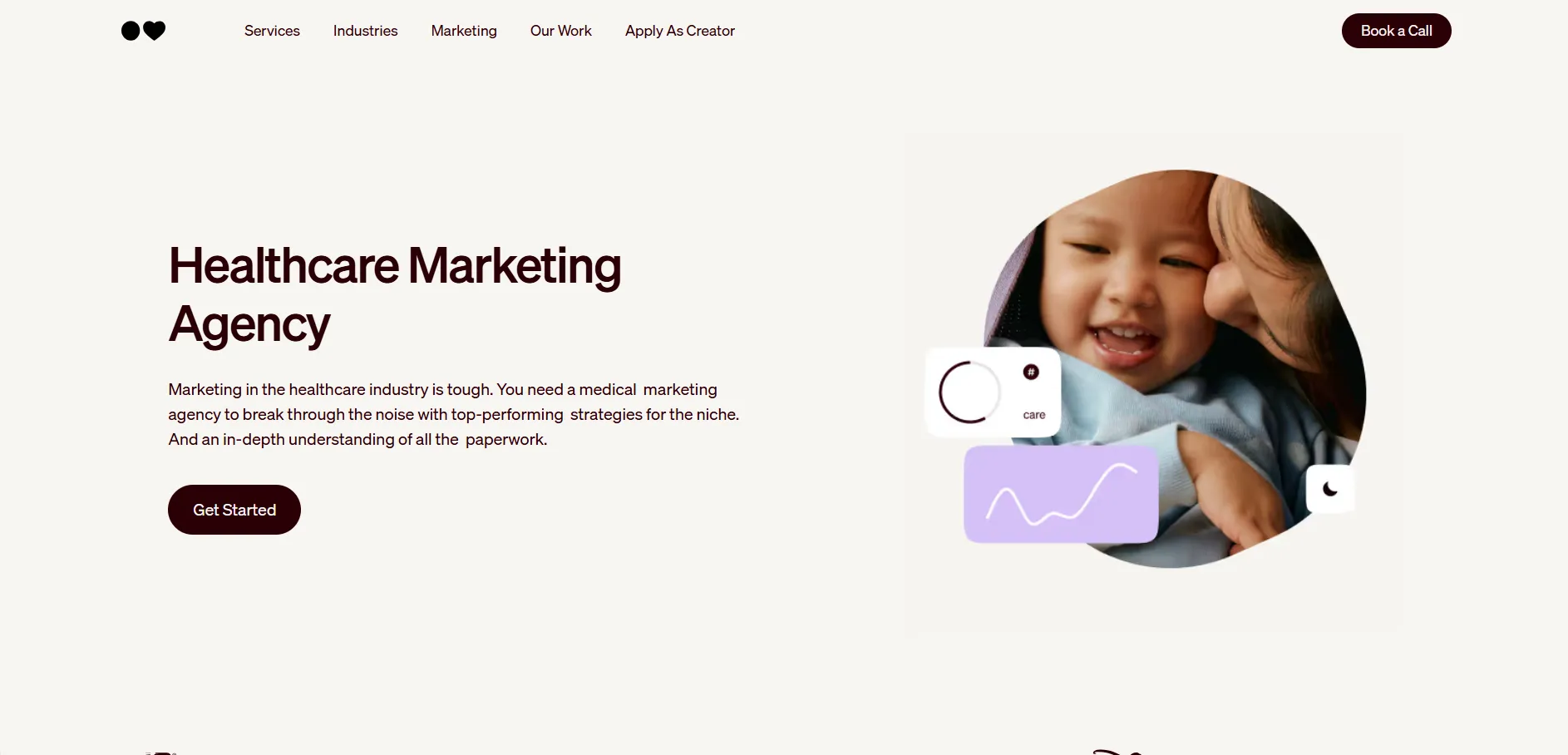
At inBeat Agency, we treat healthcare as a regulated space where compliance and measurable ROI come first.
We handle regulation research and paperwork so you don’t risk delays or violations. Our model blends micro-influencer marketing with paid media and conversion-focused creative.
We manage content marketing, ads, and analytics as a single workflow that scales without losing control of CPA or ROAS.
We partnered with AAG Health to help a healthcare provider fill a critical clinical role in a highly competitive market. Using compensation benchmarking, demand-supply analytics, and co-branded outreach across 16+ job boards, we enabled them to complete the hire within 70 days, cut appointment backlogs by 22%, and restore continuity of care.
Our goal is to make sure healthcare brands can grow with confidence. We scale campaigns, meet compliance standards, and prove impact where it matters most.
Organizations:
Hospitals, clinics, private practices, health tech companies, and healthcare investors.
Key Services:
- HIPAA-compliant campaigns with regular reporting on website traffic, lead generation, and revenue.
- Paid media with A/B testing, budget allocation, and competitive analysis.
- Micro-influencer network built around vetted creators and scalable production.
2. Healthcare Success
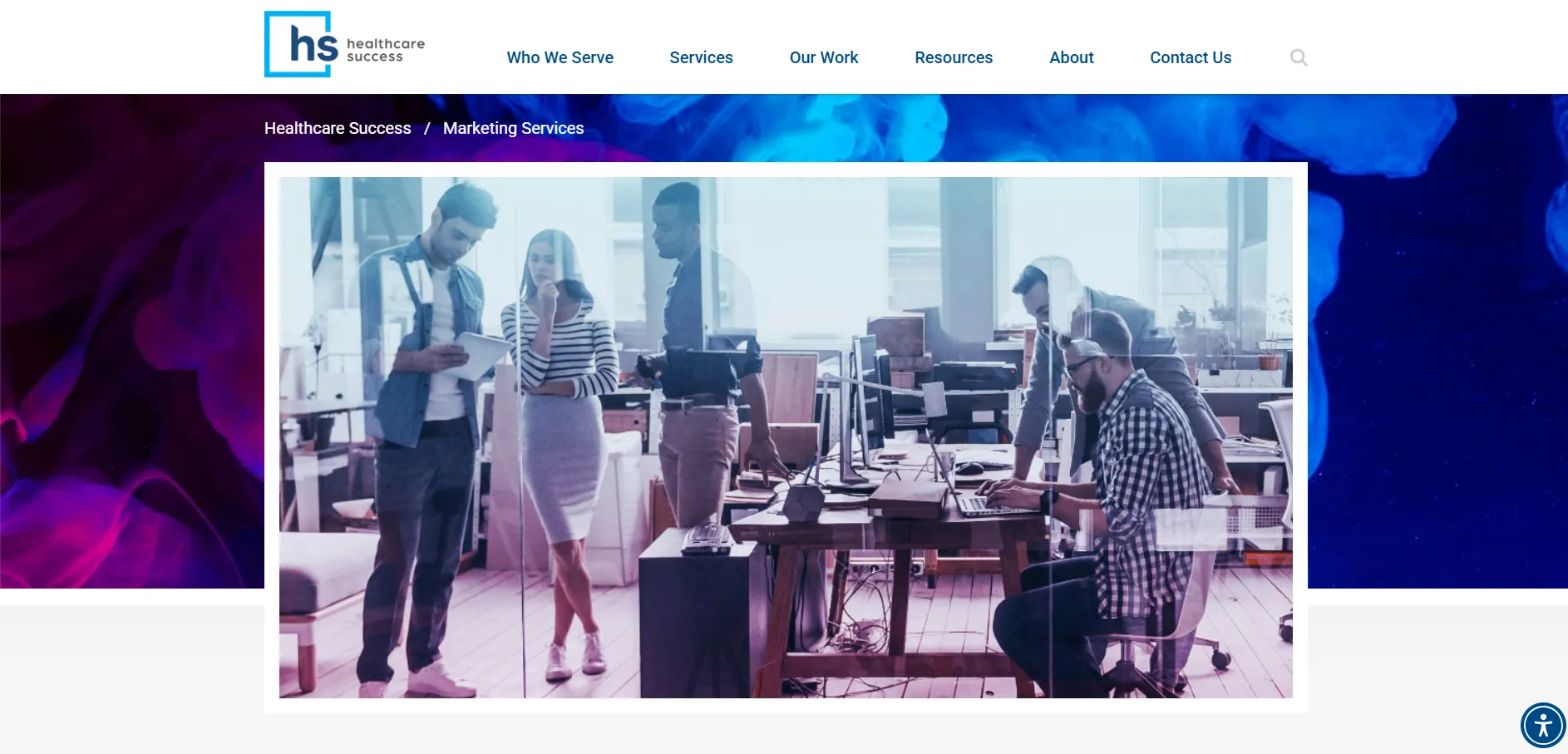
Healthcare Success operates as a full-service marketing agency for healthcare organizations.
They support digital and traditional campaigns, and serve hospitals, multi-location practices, and healthcare systems. Their work includes branding, planning, and campaign execution across several media formats.
Organizations:
Hospitals, health systems, multi-location practices, addiction treatment centers, telehealth providers, payers, and medical device companies.
Key Services:
- Digital marketing, including SEO, PPC, and social media marketing.
- Traditional advertising, such as radio, TV, and outdoor placements.
- Branding and creative services, including collateral development and messaging strategy.
3. Intrepy Healthcare Marketing
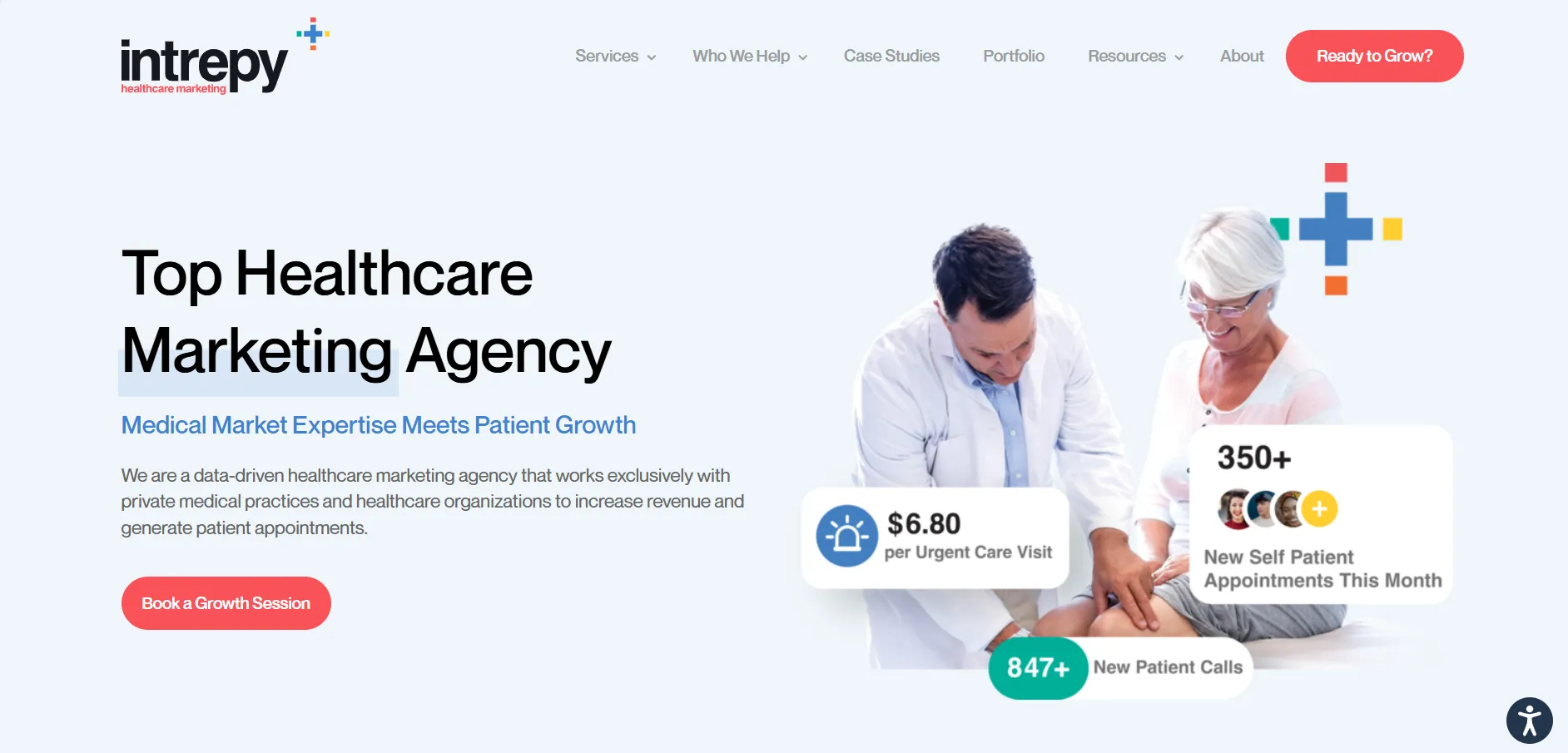
Intrepy Healthcare Marketing works with private medical practices and healthcare groups.
Their focus is on growing patient appointments and revenue through digital programs. They can also work as a partner for Private Equity firms that support specialty practices.
Organizations:
Private practices, PE-backed healthcare groups, and specialty clinics.
Key Services:
- SEO campaigns tailored to specialty healthcare practices.
- Social media management and patient engagement content.
- Paid advertising with a focus on conversion rates and appointment growth.
4. Klick Health
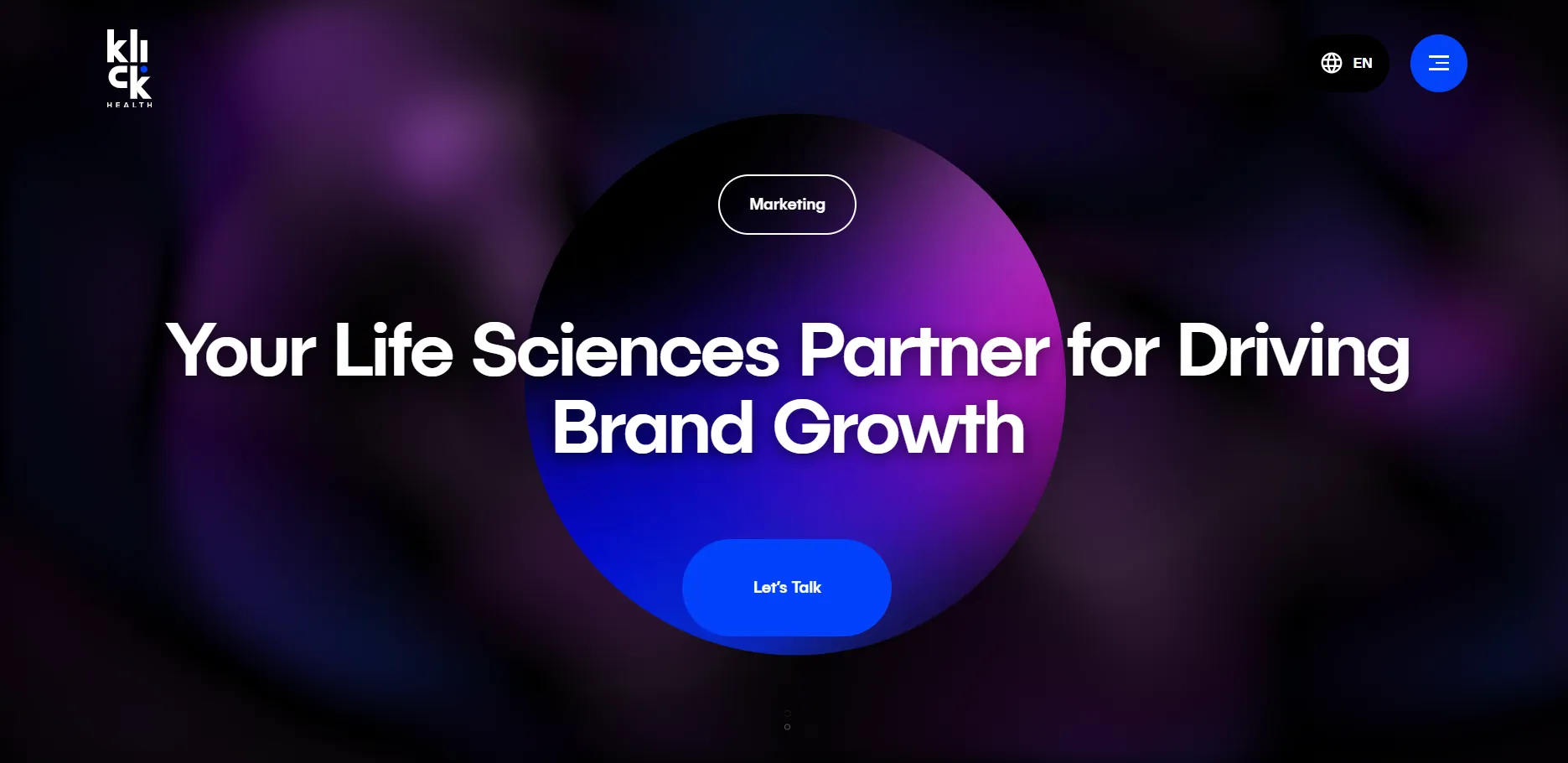
Klick Health is a commercialization partner for life sciences.
Their model integrates medical, regulatory, creative, and data functions under one organization. The company also offers proprietary tools, acquisitions, and AI-driven products that support launch planning, payer strategy, and brand development.
Organizations:
Pharma companies, biotech firms, medical device companies, and therapy providers.
Key Services:
- Pre-commercial and launch planning for products and therapies.
- Scientific communications and medical/legal/regulatory review.
- Omnichannel campaign activation supported by proprietary data models.
5. CMI Media Group
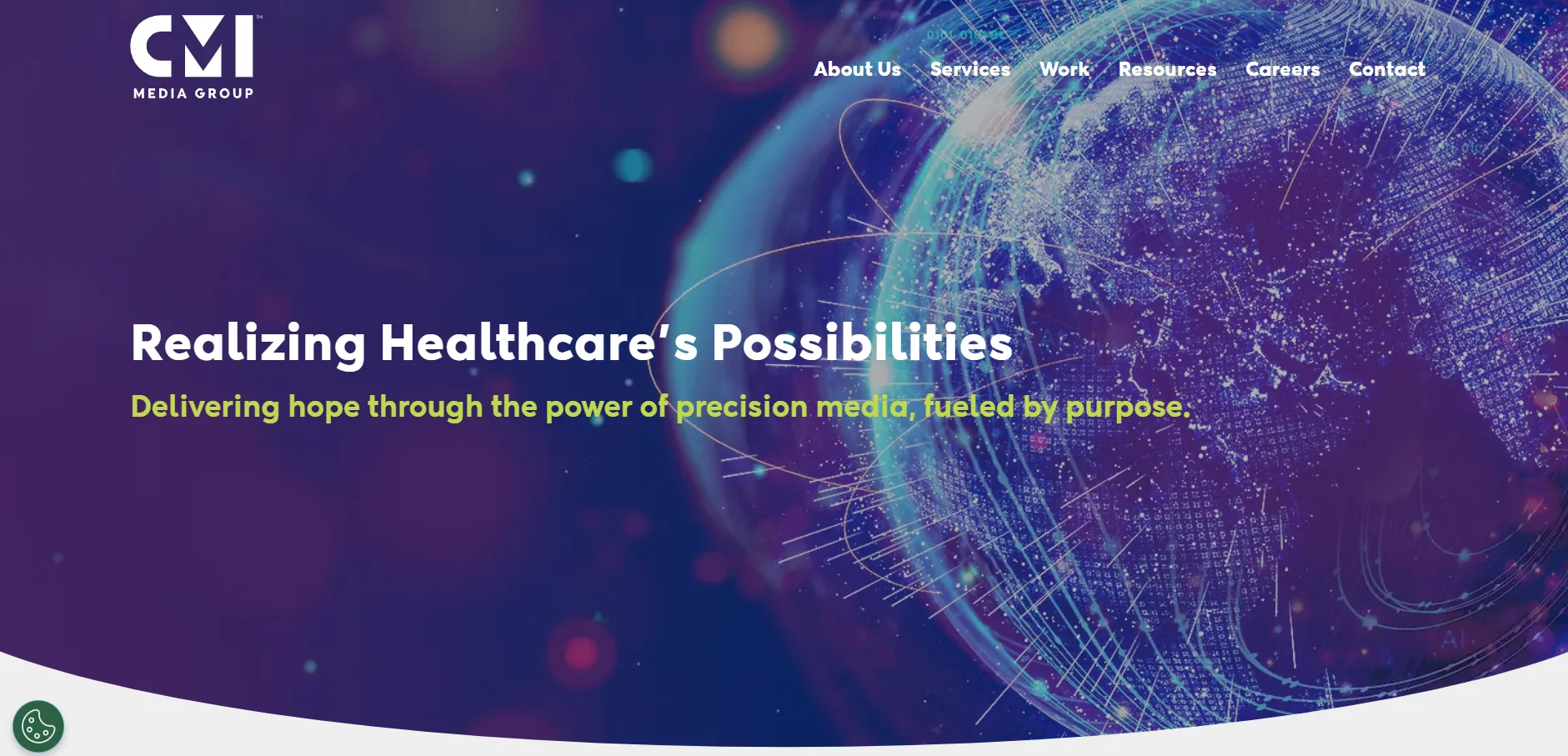
CMI Media Group operates as a healthcare media agency within WPP.
They offer media planning, buying, and audience targeting for healthcare and life sciences. Their network spans multiple regions, which allows campaigns to adapt to country-level rules and platforms.
Organizations:
Pharma companies, life sciences firms, and healthcare brands operating across global markets.
Key Services:
- Media planning and audience segmentation for therapeutic areas.
- Programmatic and direct response campaigns across digital channels.
- Collaboration with technology platforms for campaign delivery.
6. BDP Healthcare

BDP Healthcare works with healthcare systems on brand strategy, communications, and marketing programs.
They provide services across brand identity, omnichannel campaigns, and data-driven targeting. In addition, they support organizations facing reputation, crisis, and M&A communication needs.
Organizations:
Health systems, hospitals, payor organizations, and provider groups.
Key Services:
- Branding and campaign development for healthcare organizations.
- Data and analytics for segmentation and predictive modeling.
- Reputation and crisis management tied to M&A and public affairs.
7. Superside
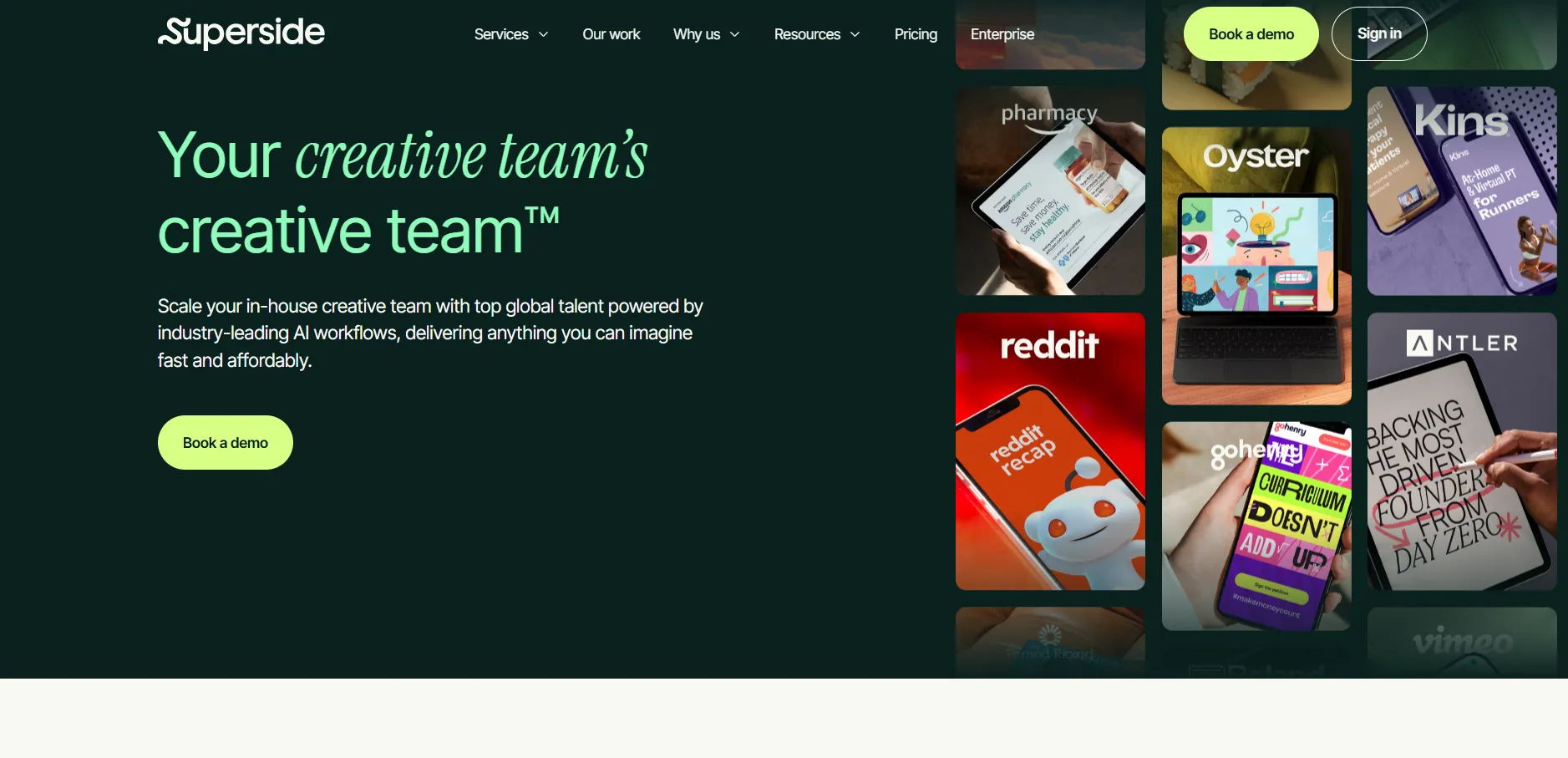
Superside is a creative-as-a-service platform.
They scale design, video, branding, and motion assets through the work of human designers and AI workflows. They work in healthcare-related fields, including pharmacy, diagnostics, and patient engagement tools.
Organizations:
Pharmacies, digital health companies, medical testing firms, and healthcare platforms.
Key Services:
- On-demand creative production across multiple design formats.
- AI-enhanced workflows for faster delivery of creative assets.
- Support for branding, presentation, and campaign design.
8. Medico Digital
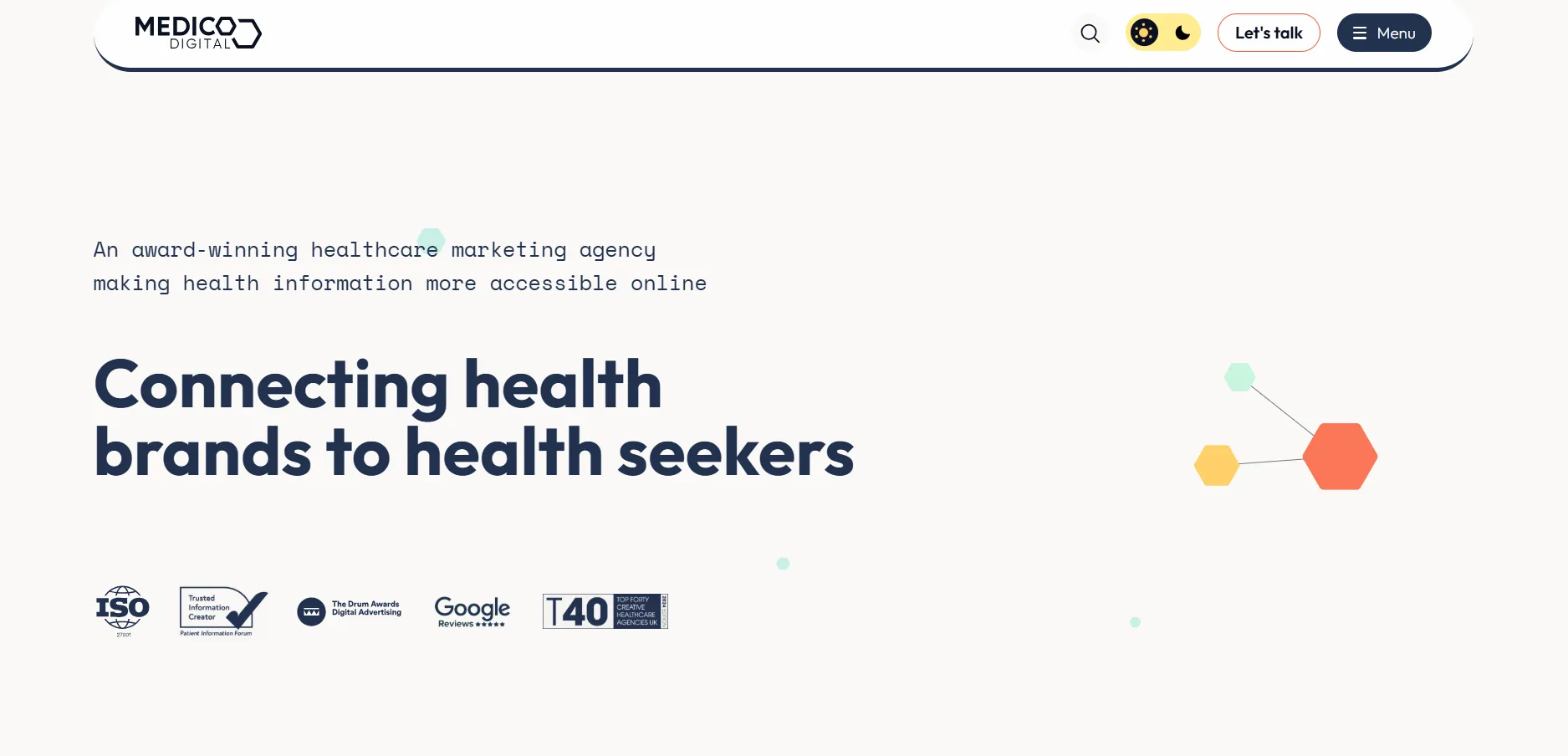
Medico Digital is a UK-based healthcare agency focused on SEO and digital activation.
They make healthcare information more accessible online and focus on connecting healthcare brands with health seekers. They work with hospital groups, medical device firms, and digital health tools.
Organizations:
Hospital groups, medical device companies, OTC brands, and digital health providers.
Key Services:
- Search marketing and medical content development.
- Website design optimized for healthcare audiences.
- Paid media management with compliance review processes.
9. Levo Health
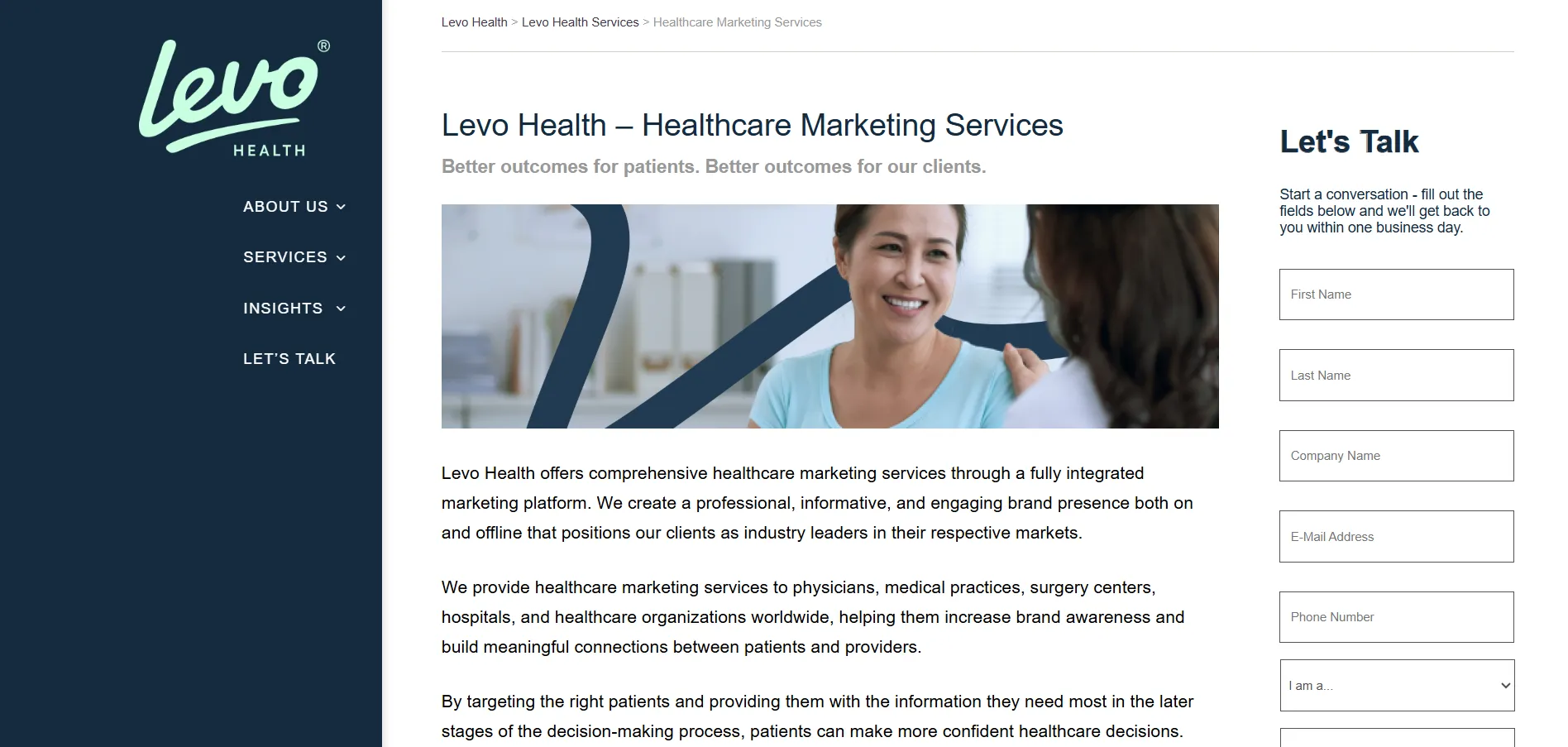
Levo Health is a healthcare and medical marketing agency with services that span patient engagement and branding.
Their programs cover multi-channel campaigns across digital, in-person, and point-of-care environments. They also provide patient relationship solutions such as review generation and live chat.
Organizations:
Clinics, wellness brands, healthcare practices, and telemedicine platforms.
Key Services:
- Patient engagement solutions across web, mobile, and digital touchpoints.
- Branding, logo development, and website build projects.
- Reputation and review management tied to digital presence.
10. Wisevu
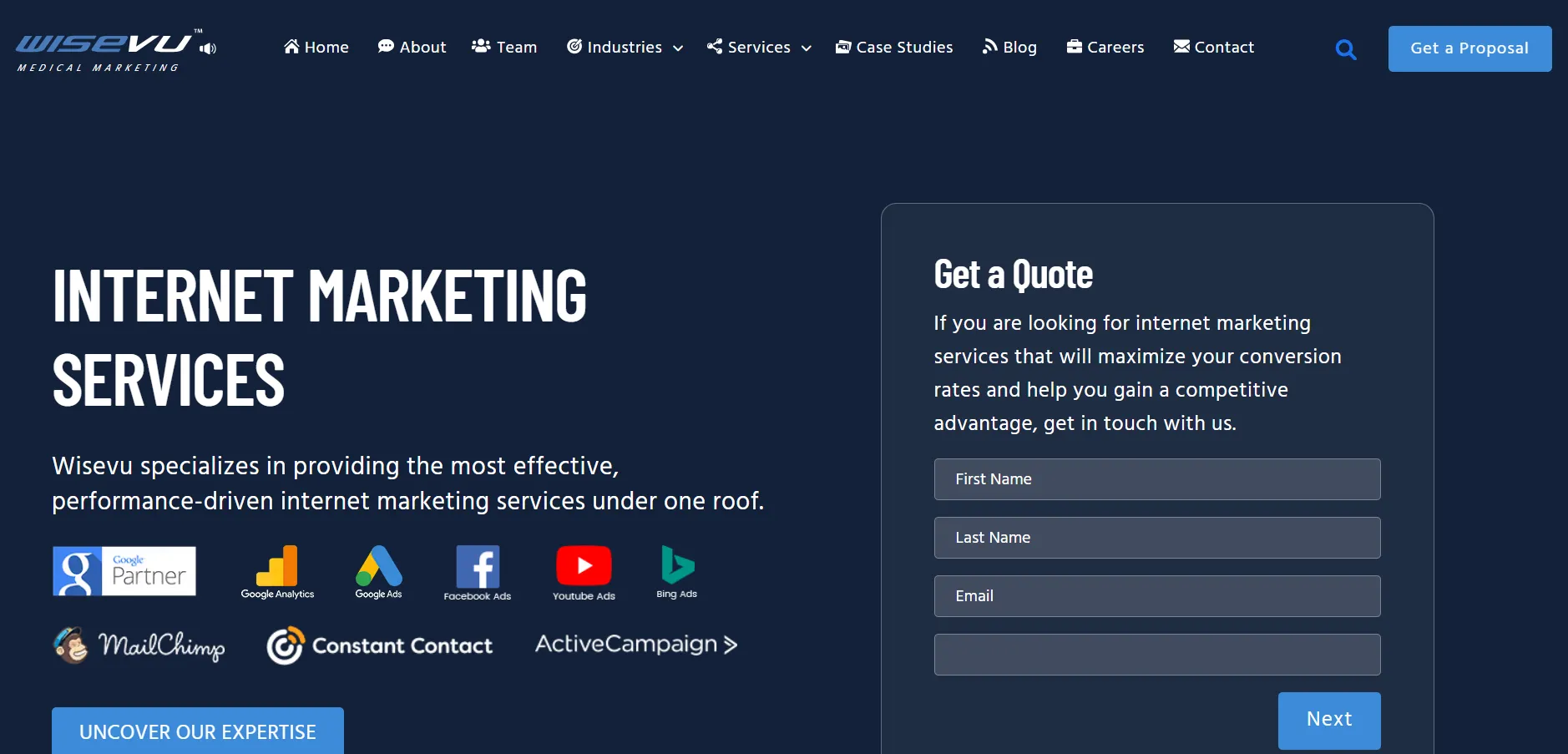
Wisevu is a medical marketing agency focused on clinics and wellness brands.
Their programs revolve around search visibility, paid advertising, and compliance-based growth strategies. They offer long-term ROI through a combination of SEO, web development, and advertising methods.
Organizations:
Clinics, medical spas, dental practices, and wellness brands.
Key Services:
- SEO campaigns with keyword strategy and link building.
- Web design and development aligned with search optimization.
- Paid advertising across PPC, display, and social platforms.
Pricing Models and What to Expect
When you evaluate agencies, pricing typically ranges from $2,000 to $10,000 per month for healthcare organizations. The model depends on how you want to structure the relationship.
- A retainer gives you ongoing support each month, usually covering campaign management, reporting, and compliance oversight.
- A project-based arrangement is set around a fixed deliverable, such as a new website or a short-term advertising campaign.
- A performance-based model ties fees to measurable outcomes like cost per acquisition or booked patient appointments.
Costs change based on several factors. Location impacts media spend and labor rates, while project scope affects the number of services bundled into a contract. Compliance complexity also matters.
Campaigns in areas with higher regulatory oversight, such as pharma or life sciences, require additional review steps and legal safeguards. These added layers of compliance increase overall cost. Knowing these factors helps you compare proposals fairly and align budgets with your growth priorities.
Choosing the Right Healthcare Advertising Partner
Selecting the wrong agency wastes budgets, risks compliance penalties, and erodes patient trust. The right partner helps you increase patient growth, protect data, and link every campaign to measurable ROI.
That’s because a healthcare-focused strategy requires compliance documentation, reliable reporting, and campaigns aligned with the patient journey.
The truth is, you cannot afford to treat this as a trial-and-error decision. You need a partner that blends creative execution with analytics to drive real outcomes.
Work with inBeat Agency as your trusted healthcare advertising partner.
FAQs
How do you choose the right agency in advertising?
You choose by defining goals, checking compliance policies, and reviewing healthcare-specific case evidence. Ask about reporting methods, ownership of ad accounts, and integration with your tech stack.
What are the 5 P’s of healthcare marketing?
The 5 P’s are Product, Price, Place, Promotion, and People. Each shapes how campaigns attract, convert, and retain patients while staying compliant.
How to advertise health care?
You advertise by using targeted campaigns that combine digital ads, content, and outreach. Every campaign must align with HIPAA and local regulations, and results should tie back to patient growth.
How big is the healthcare advertising market?
According to Market Data Forecast, the global healthcare advertising market was valued at USD 42.28 billion in 2024. It is projected to grow to USD 67.87 billion by 2033 at a CAGR of 5.4%.





.svg)
.svg)
.svg)
.svg)


.svg)







